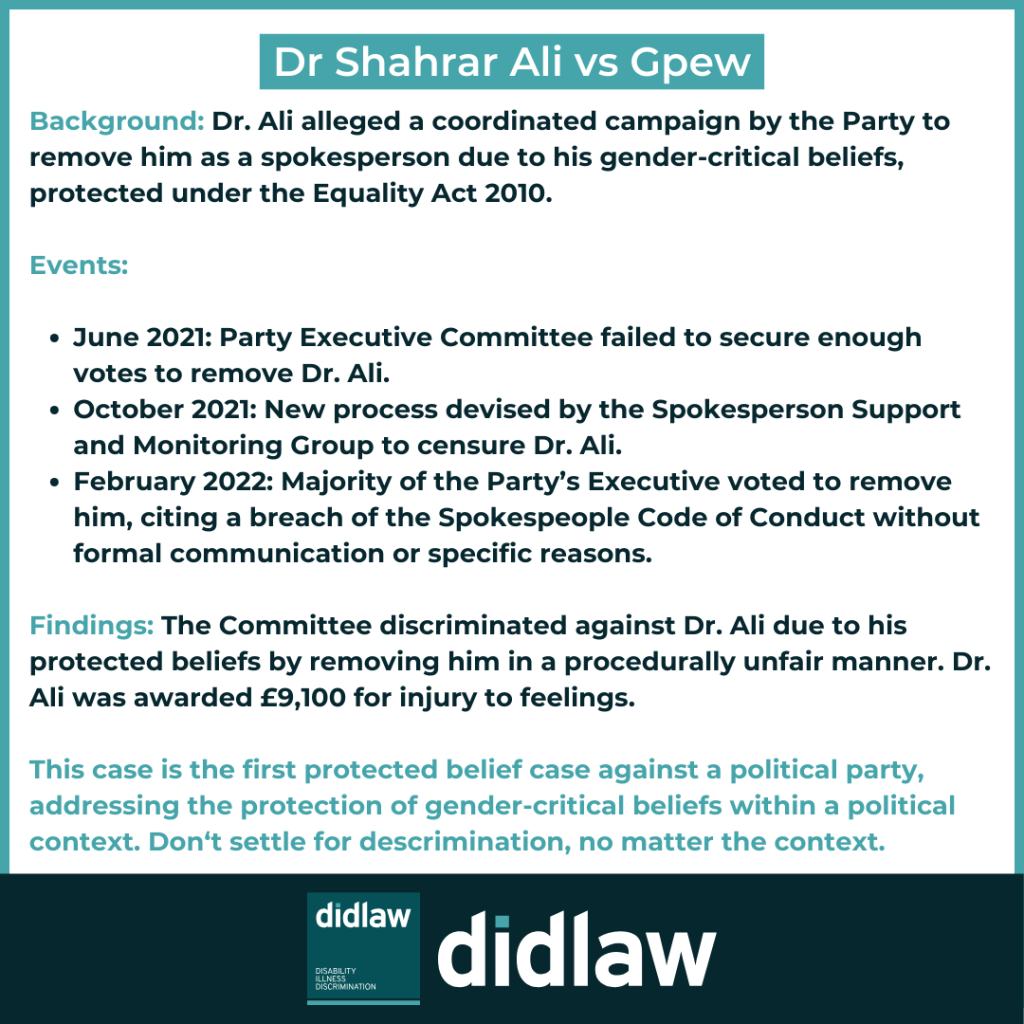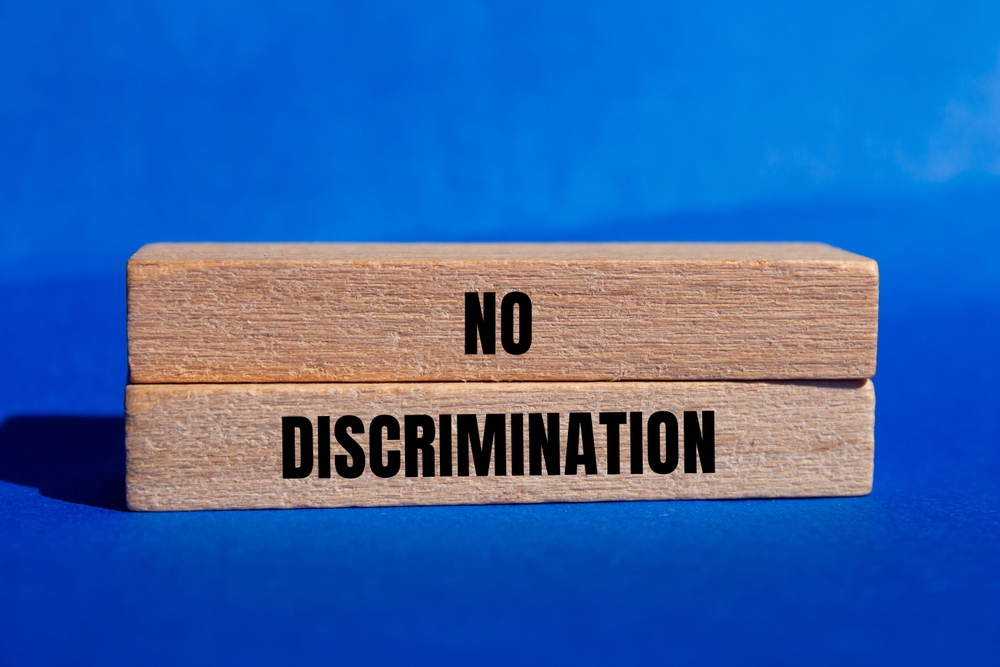
didlaw is delighted to announce the successful judgment for its client, Dr Shahrar Ali, in his discrimination claims against the Green Party of England & Wales.
Dr Ali pursued discrimination claims against the Green Party on the basis that he was subjected to a coordinated campaign by the Party to see him removed as a Party spokesperson, because of his gender critical beliefs. These beliefs, that sex is real and immutable, are protected under section 10 of the Equality Act 2010.
It was Dr Ali’s case that when the Party Executive Committee failed to secure enough votes to remove him as Spokesperson at a meeting in June 2021, a new process was devised so as to ensure he was removed. In October 2021, a newly formed Spokesperson Support and Monitoring Group asked Dr Ali to address concerns about ‘trans rights’. Unbeknownst to Dr Ali, one of the Group’s key aims was to censure him.
On 5 February 2022, a majority of the Party’s Executive voted to remove Dr Ali from his Spokesperson role. The Party did not formally inform him of the removal and nor was he provided with any specific reason for the removal, save for a public announcement made on Twitter which alleged that he had breached the Spokespeople Code of Conduct.
In a 61-page judgment, HHJ Hellman clearly describes the treatment of Dr Ali’s case and upholds his claim that the Green Party Executive Committee, by removing Dr Ali from his role of Spokesperson in a procedurally unfair way, ‘discriminated against Dr Ali because of his protected belief contrary to section 101 of the Equality Act.’
The judgment concludes ‘I have upheld in part Dr Ali’s claim that he was unlawfully discriminated against’ and states ‘Dr Ali also seeks a declaration that he has been subjected to unlawful discrimination. I grant the declaration sought, although it does not obviate the need for damages.’ In addition to a declaration of unlawful discrimination, Dr Ali has also been awarded £9,100 as an award for injury to feelings.
This is a landmark case and the first protected belief case against a political party. It is also the first case in which the court has had to consider the protection of those with gender critical beliefs in a political party. The key factor for consideration in any protected belief case is the balance between the reasonable manifestation of a belief and the limitations imposed by Articles 9 and 10 of the ECHR in the context in which those beliefs are expressed. This is a tricky balancing act. One thing is clear, the Equality Act 2010 and the obligation to protect members from discrimination apply to all political parties.
Dr Ali was represented by Jeffrey Jupp of 7 Bedford Row in a case lasting 6 days in the London Central County Court.
Dr Shahrar Ali was represented by Elizabeth McGlone, Partner and Yavnik Ganguly, Solicitor, of didlaw.
